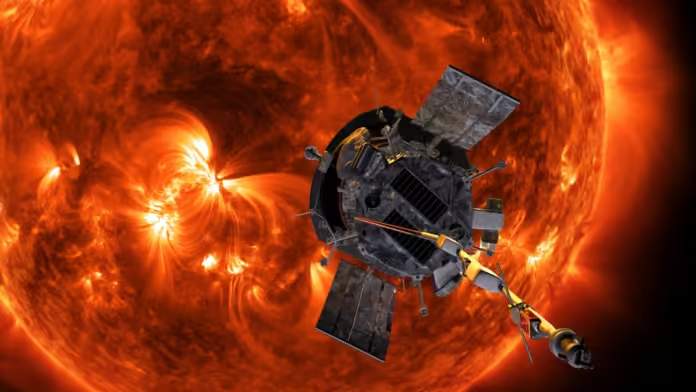NASA’s Parker Solar Probe has made history by completing the closest-ever approach to the Sun by any human-made object. On December 24, the spacecraft passed just 3.8 million miles (6.1 million kilometers) from the Sun’s surface, venturing into its outer atmosphere, known as the corona. This milestone marks a significant achievement in NASA’s ongoing mission to understand Earth’s closest star.
Successful Mission and Safe Status
Following its record-breaking approach, NASA confirmed that the Parker Solar Probe is “safe” and operating normally. The operations team at the Johns Hopkins Applied Physics Laboratory (APL) in Maryland received a beacon tone from the spacecraft just before midnight on Thursday, signaling that it had successfully completed the flyby. NASA added that detailed telemetry data about the spacecraft’s status is expected to be sent on January 1.
High-Speed Journey and Extreme Conditions
During its journey, NASA’s Parker Solar Probe reached speeds of up to 430,000 mph (692,000 kph), enduring temperatures as high as 1,800 degrees Fahrenheit (982 degrees Celsius). These extreme conditions required the spacecraft to withstand significant heat while gathering crucial data.
Groundbreaking Solar Research
This close-up study of the Sun will provide valuable insights into the Sun’s behavior and its influence on the solar system. Parker Solar Probe will measure how the Sun’s corona is heated to millions of degrees, track the origin of solar wind, and explore how energetic particles are accelerated to near light speed. These findings are essential for understanding space weather and its potential impact on Earth.
Background of NASA’s Parker Solar Probe
Launched in 2018, NASA’s Parker Solar Probe has been gradually edging closer to the Sun, utilizing flybys of Venus to refine its orbit. The spacecraft’s mission is expected to yield groundbreaking discoveries that will expand our knowledge of the Sun and its complex dynamics.




